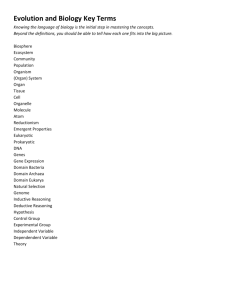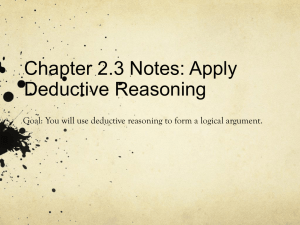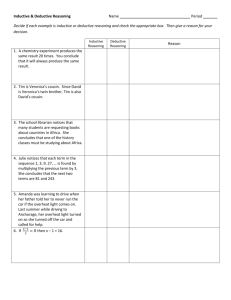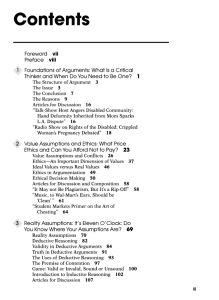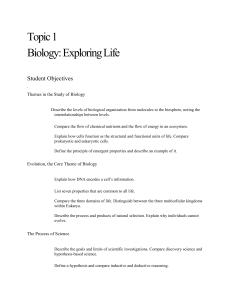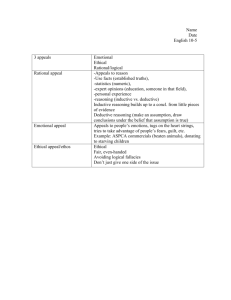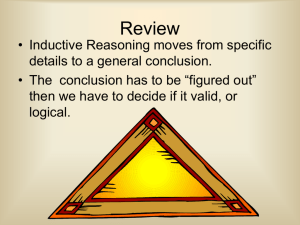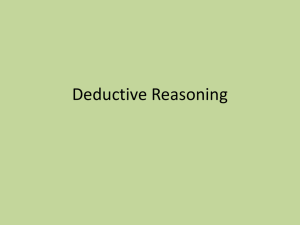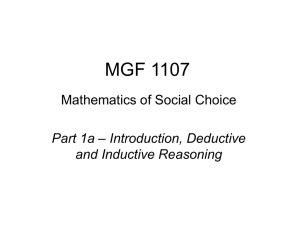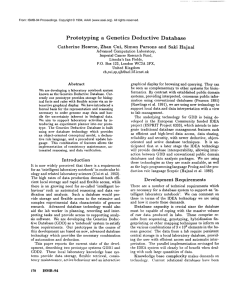Kari F. Deductive Reasoning
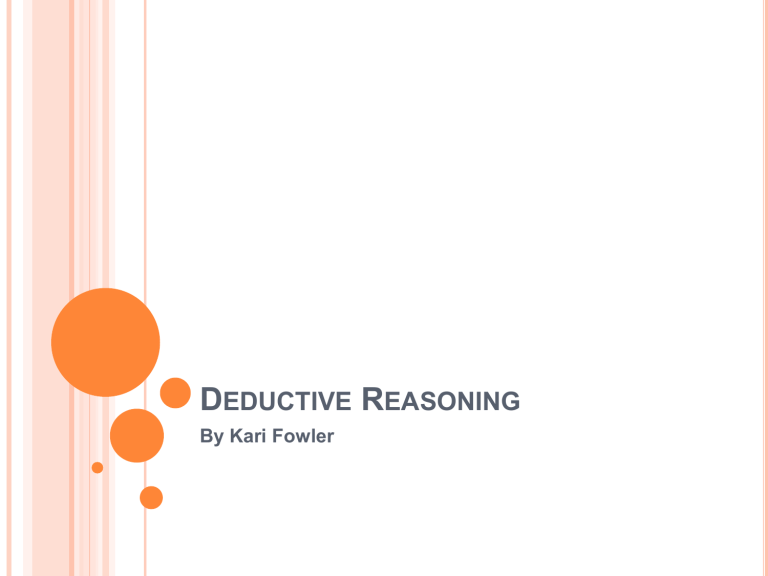
D EDUCTIVE R EASONING
By Kari Fowler
W HAT IS D EDUCTIVE R EASONING ?
Opposite of Inductive Reasoning
In Deductive Reasoning you are taking something general and applying it to a specific instance.
3 Steps to Deductive Reasoning
1) Take a general true conclusion
2) Apply the conclusion to a specific instances to demonstrate…..
3) The conclusion does indeed apply to the instance
T ERMS Y OU NEED T O K NOW
Terms that you must use to argue deductively,
Most, many, often etc .
Absolute Terms: never use words like, all, never or always.
C HAPTER E XAMPLE
Susan B. Anthony defended that fact that she had voted in the 1872 election- forty-eight years before women were given the right to vote.
She claims she committed no crime but simply exercised her citizen’s rights.
For support she commented on the preamble of the Federal Constitution.
“We the People of the United States, in order to form a more perfect union, establish justice…..and establish this
Constitution for the United States of
America.”
D ID Y OU C ATCH THAT !?!
“
We the People
of the United States, in order to form a more perfect union, establish justice…..and establish this Constitution for the United States of America.”
The Preamble states that “We the people,” not we the male citizens.
We the people as in meaning both male and female.
T WO T ESTS FOR D EDUCTIVE R EASONING
First Test: Make sure it is valid. If it isn’t then it can’t be applied to specific instances. Needs factual support.
Second Test: Whether the generalization applies to a particular case.
E XAMPLES
Frogs are amphibians
The Coqui is a frog native to Puerto Rico
The Coqui is an amphibian.
May I Have a Volunteer??????
http://www.youtube.com/watch?v=YJyuy4B2aKU
1) Give a short example of deductive reasoning not used in the powerpoint.
2) What type of terms should you not use when arguing deductively?
3) What is one way to test deductive reasoning?
T HE A NSWERS
1) A variety of different answers! : )
2) Do not use any terms that are extreme. For example, always and never.
3) First Test: Make sure it is valid. If it isn’t then it can’t be applied to specific instances. Needs factual support.
Second Test: Whether the generalization applies to a particular case.
THE END I Feel
Smarter!!
